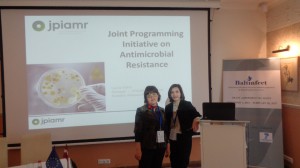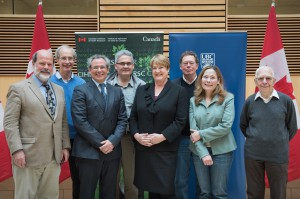On 2-3 June 2015, JPIAMR’s Laura Marin, Bertrand Schwartz and Ghada Zoubiane will be at the Uppsala Health Summit to discuss ‘A world without antibiotics’. The summit calls for a concerted effort to tackle the antibiotic crisis.
‘Antibiotic Resistance is a complex problem driven by many interconnected factors. As such, single, isolated interventions have little impact. Coordinated action is required to minimize emergence and spread.’
JPIAMR fully endorses this sentiment and through our work, we are coordinating international research actions to find new ways of reducing antimicrobial resistance and developing new treatments for infectious diseases. We provide a platform where innovative collaborative activities can be developed which covers all areas of the problem from surveillance via diagnostics all the way to changing behaviour.
With this in mind, JPIAMR has special interest in the workshop ‘Environmental Dimensions of Antibiotic Resistance’. Taking a holistic approach where all aspects of the causes of antimicrobial resistances are taken into account is the only way to turn the tide. During the workshop, JPIAMR will join discussions on environmental risk management of emissions of antibiotics from pharmaceutical manufacturing, of emissions of human sewage/municipal wastewater and of emissions from agricultural sources.
Come and speak to Laura, Bertrand or Ghada at the Uppsala Health Summit to find out more about the Joint Programming Initiative on Antimicrobial Resistance. We offer opportunities for new members and collaborators to take part in an international platform and connect with world-wide experts in the AMR field. We also offer funding opportunities for researchers.

